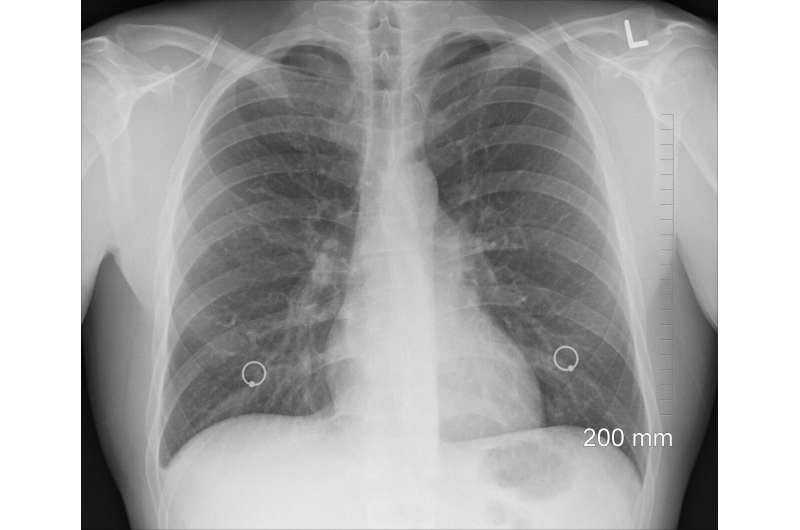Pre-IVF Weight Loss Support Can Enhance Pregnancy Success and Reduce Treatment Needs

Supporting women with obesity through weight loss programs before IVF can boost pregnancy rates, potentially reduce treatment needs, and promote fairer access to fertility care. Recent studies emphasize the importance of preconception weight management for improved reproductive success.
Recent research highlights the potential benefits of supporting women with obesity through weight loss programs before undergoing in vitro fertilization (IVF). Approximately 20% of women of reproductive age live with obesity, which is defined by a body mass index (BMI) over 30 kg/m². Such women face increased fertility challenges—being three times more likely to experience fertility problems and nearly twice as likely to suffer a miscarriage compared to women with a healthy BMI.
While IVF offers hope for many, access to this treatment is often limited by strict BMI restrictions, especially in publicly funded healthcare systems like the UK, where eligibility is typically for women with a BMI under 30. This policy disproportionately affects women from disadvantaged backgrounds and certain ethnic groups, who are more prone to obesity.
Emerging evidence from a comprehensive analysis of 12 international trials involving around 1,921 women planning IVF indicates that structured weight loss support prior to conception can significantly improve reproductive outcomes. Women who participated in weight loss programs had a 21% higher overall likelihood of pregnancy, including a 47% increase in natural conception, which in some cases allowed women to conceive without IVF altogether.
However, this increase in pregnancy rates did not consistently translate into higher live birth rates, potentially due to limited data tracking these outcomes. Still, these findings suggest that preconception weight management could increase fertility and lessen dependence on costly treatments.
One notable challenge is the paradoxical restriction: women with obesity are more likely to need IVF but are often deemed ineligible due to BMI limits. Offering targeted, structured weight loss support could help more women reach eligibility, promote fairer access to fertility treatments, and reduce overall healthcare expenditures.
Effective non-surgical weight loss options include medications like GLP-1 receptor agonists—such as Wegovy or Mounjaro—which induce significant weight reduction. Despite their promise, these drugs are not recommended during conception, pregnancy, or breastfeeding, due to limited safety data and potential risks to fetal development. Therefore, women planning pregnancy are advised to consider other safe approaches, including structured support groups and low-energy diet programs, which are not typically integrated into standard IVF care.
Accessibility remains a concern, as public NHS programs are limited, with long waiting lists and often designed for those with obesity-related health issues rather than fertility concerns. In many countries, private programs are costly and not affordable for all.
The findings underscore the importance of integrating supportive weight management into fertility care pathways. Doing so could improve pregnancy chances, reduce reliance on expensive treatments like IVF, and promote more equitable access to reproductive healthcare for women affected by obesity.
Stay Updated with Mia's Feed
Get the latest health & wellness insights delivered straight to your inbox.
Related Articles
Innovative Smartphone-Operated Nerve Stimulator Helps Golfer Regain Mobility
A new smartphone-controlled spinal cord stimulator offers effective relief for neuropathy, enabling a golfer to return to playing after severe nerve pain. Discover how cutting-edge neuromodulation technology is transforming pain management and quality of life.
Assessing the Accuracy of Racial Minority Representation in US Cancer Registries
This article explores how well US cancer registration systems capture racial minority data and the implications for addressing health disparities. Recent studies highlight improvements and ongoing challenges in accurately classifying multiracial populations to better understand cancer incidence and mortality rates.
Rethinking COPD Diagnosis to Enhance Accuracy and Facilitate Early Detection
A new multidimensional diagnostic approach for COPD integrates symptoms and imaging data, enabling earlier and more accurate detection of at-risk individuals beyond traditional spirometry methods.
Supporting Vaping Cessation: Strategies for Those Quitting Nicotine Vapes
Learn about effective strategies and support systems to help individuals quit nicotine vaping, addressing the rising demand for cessation assistance in New Zealand and beyond.



